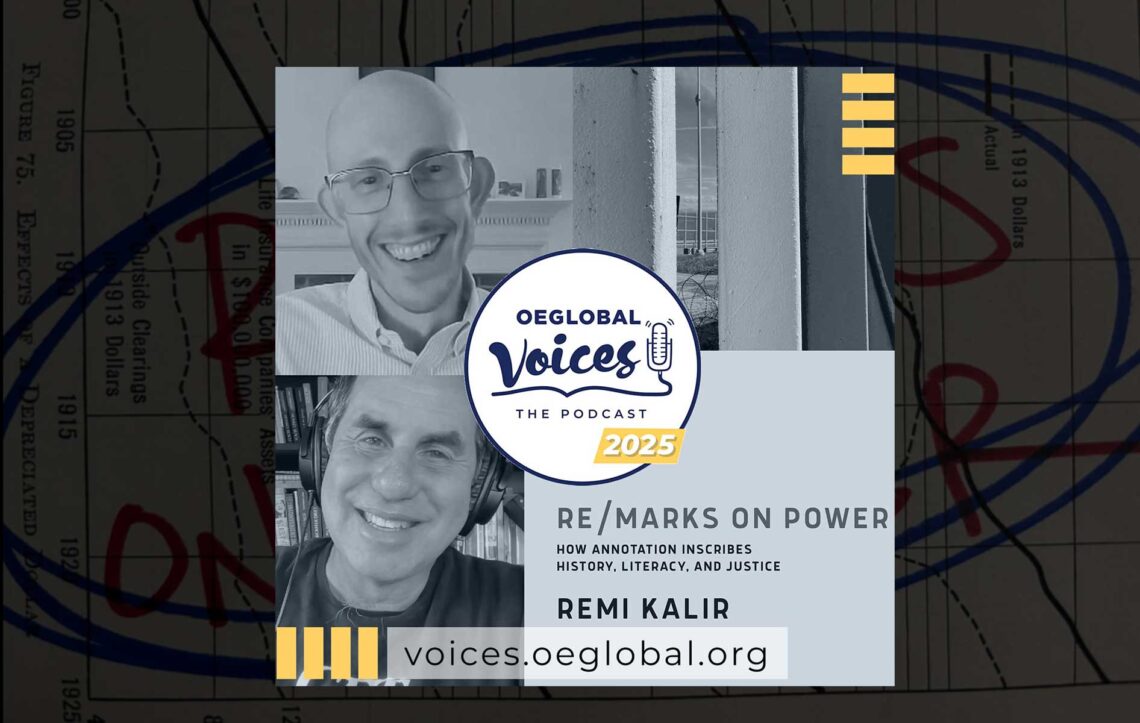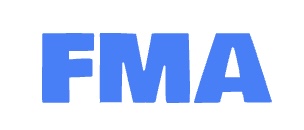Next we travel to Charlotte, North Carolina in the US for a dynamic conversation with educator and scholar Remi Kalir. He shares his deep rooted interest in the act of marking or annotating everything from books, recipes, to syllabi and what it means for literacy and learning to engage in the act of adding a note to text (not to mention stop signs and more).
In his 2021 book Annotation, co-authored with Antero Garcia, Remi makes this case for annotation as something not just for scholars, but as an every day activity. And he extends this concept farther in his new book published this year Re/Marks on Power which brings forward how annotation as an act of civic literacy and social justice, looking at everything from augmenting a timeline sign at a National Monument, to how the established lines of country borders are a form of note making, how libraries annotate via organizational schemes, how authors invoke activism to litreally asking patrons to change the title of a book with markers, and to how Harriet Tubman’s seemingly simple signature was an act of criticism and resistance.
Remi also shares his commitment to openly publishing both of his books and also in sharing practices through his Reading Re/Marks site.

Podcast: Play in new window | Download
at Descript.com
In This Episode
FYI: For the sake of experimentation and the spirit of transparency, this set of show notes alone was generated by the AI “Underlord” in the Descript editor we use to produce OEGlobal Voices.
Annotated Conversations: Remi Kalir on Literacy, Social Justice, and the Power of Annotation
In this episode of OEGlobal Voices, host Alan Levine speaks with Remi Kalir about his extensive work on annotation. They discuss a variety of topics, including the pivotal annotation efforts by park rangers at the Muir Woods National Monument to highlight Indigenous stewardship and contributions to the land. Remi also shares his journey from Michigan to his current role at Duke University, discussing the influence of his mentors and his experiences growing up with a strong educational background. They delve into Remi’s book, ‘Re/marks on Power,’ exploring annotations as a form of social activism and justice, including examples like Harriet Tubman’s annotations and the marking of the US-Mexico border. The conversation covers open education, the importance of accessible scholarly work, and how annotation practices can foster more profound connections and learning experiences. Finally, Remi reflects on personal joys outside of work and the importance of movement and family in maintaining balance and happiness.
- 00:00 Intro Music and Highlighted Quote
- 01:02 Welcome to OEGlobal Voices
- 01:22 Introducing Remi Kalir
- 03:51 Remi’s Early Life and Education
- 07:06 Influence of Technology in Remi’s Life
- 09:44 The Power of Memory and Imperfection
- 12:57 First Experiences with Annotation
- 24:53 Annotation in Different Contexts
- 26:53 The Annotated Muir Woods National Monument
- 29:06 Challenges and Censorship of Annotations
- 31:41 The Concept of Re/marks on Power
- 34:16 Harriet Tubman’s Legacy and Annotations
- 44:14 Open Education and Publishing
- 47:41 Future Engagement and Community Activities
- 50:03 Finding Joy Beyond Work
- 51:14 Closing Remarks and Outro
(end of AI generated show notes)
Additional Links and Quotes for Episode 90
I’ve been thinking a lot about the fact that it was this summer, 20 years ago, that I was starting to set up that classroom at Middle School 22, teaching literacy to 11 and 12 year olds and seeing how they were or were not marking what they were reading. And I could see that there was something happening in a classroom setting.
But of course, we’re also seeing this in the streets. We’re seeing marked up signs, we’re seeing marked up billboards. We’re also certainly seeing that increasingly on social media, certainly many folks have written about hashtags and what it means to circulate messages, particularly in online spaces through things like hashtag activism, the title in fact of a, lovely and very important book.
And so it’s all to say that I was seeing these kinds of notes accompanying texts, notes added to text in so many different contexts. I felt ultimately then, by that time as a scholar, that I wanted to bring some kind of, again, consistent language and some kind of consistent analysis to what I understood to be happening both in the classroom and in the streets or informal learning environments, but also in environments that are very much educational, but seen as not only informal, perhaps even recreational.
Remi Kalir on annotation in school and in the world
- Remi Kalir (web site)
- #AnnotatedSyllabus
- Marginal Syllabus Project (Internet Archive)
- Researching Annotation’s Power With Our First Scholar in Residence (Hypothes.is)
- Annotation (by Remi Kalir and Antero Garcia, 2021)
- Tappan Hall (University of Michigan)
- Jeff Kupperman
- Annotating the UNESCO Recommendation on OER (OEGlobal)
- Re/Marks on Power (2025, published by MIT Press)
- Reading Re/Marks (newsletter and web site)
- Requesting Re/Marks #1 (marks on stop signs)
- Melissa by Alex Gino
- Melissa’s Story and Sharpie Activism
- Hashtag Activism (Wikipedia)
- HashtagActivism: Networks of Race and Gender Justice (open accesa book)
- Muir Woods National Monument (US National Park Service)
- Re/Marks on “Restoring Truth” (Reading Re/Marks)
- Coast Miwok People (Wikipedia)
- John Muir (Wikipedia)
- A Passion for Nature The Life of John Muir (biography by Donald Worster)
- History Under Construction (National Parks Service, Muir Woods National Monument)
- Muir Woods exhibit becomes first casualty of White House directive to erase history (SF Gate)
- This Is What Censorship Looks Like in a National Park: The First Park Sign That Came Down (Elizabeth Villano)
- Harriet Tubman (Wikipedia)
- Re/Marks on Her Mark (Reading Re/Marks)
- COMBEE: Harriet Tubman, the Combahee River Raid, and Black Freedom during the Civil War (by Edda Fields-Black)
- Freedom Byway (Harriet Tubman Byway)
- ‘Beacon of Hope’ statue honors Tubman in her homeland
- Reading Re/Marks (newsletter and web site)
So again, huge shout out to MIT Press. I’ve had just nothing but an incredible relationship with them, publishing both of my books. They have been really amplifying what they call their Direct to Open program, a commitment to publishing a certain number of scholarly books every year that immediately are openly accessible.
I am grateful that my publisher is also committed to that knowledge commons in this open way. … I also just mentioned by the way, that when I do earn any royalties in any book I’ve ever published, I donate all of it away. I’ve written about that also for years. I’ve been rather transparent about all of that. I’m very happy that the modest royalties that I’ve been able to make these books has been donated to literacy organizations like Freedom Reads.
But at the end of the day, it’s open. It’s out there, it’s accessible. And that to me is, as a scholar, so important that I can make that commitment.
Remi Kalir on open access publishing
- MIT Press
- Open Access at the MIT Press
- Direct to Open: A bold, innovative model for open access to scholarship and knowledge
- Donating my 2024 Book Royalties (Remi Kalir)
- Freedom Reads
Our open licensed music for this episode is a track called Note Drop by Broke For Free that is licensed under a Creative Commons Attribution-NonCommercial license. Like most of our podcast music, it was found at the Free Music Archive (see our full FMA playlist).









